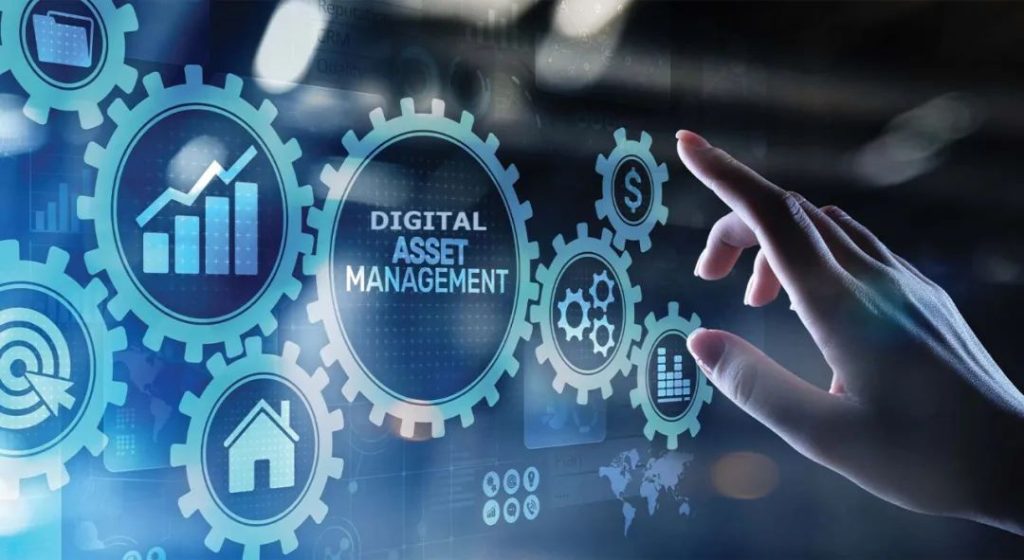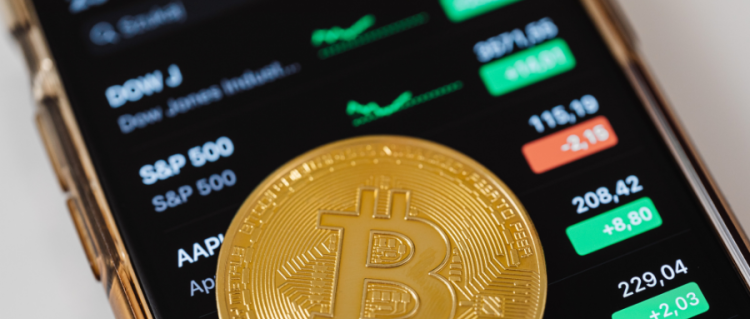In recent years, digital assets have gained significant traction across various industries, with more businesses integrating them into their operations and investment strategies. What was once considered a niche market, mainly dominated by cryptocurrency enthusiasts and blockchain innovators, is now being explored by a growing number of traditional businesses, financial institutions, and governments. As digital assets continue to evolve, understanding why businesses are paying attention to this trend has become crucial.
This article explores the key reasons behind the increasing interest in digital assets among enterprises and how they are transforming the business landscape.
1. Digital Assets Offer New Investment Opportunities
One of the main reasons why businesses are turning their attention to digital assets is the potential for new investment avenues. Cryptocurrencies, Non-Fungible Tokens (NFTs), and tokenized assets offer businesses an opportunity to diversify their investment portfolios and potentially achieve higher returns compared to traditional assets like stocks, bonds, or real estate.
a) High Returns and Volatility
Digital assets, particularly cryptocurrencies, have demonstrated the potential for high returns, albeit with significant price volatility. For example, Bitcoin and Ethereum have seen enormous price increases in the last decade, making them attractive investment opportunities for forward-thinking companies. While this volatility can present risks, businesses that invest early and strategically can capitalize on the price movements.
- Diversification: Digital assets provide businesses with an opportunity to diversify their investments and reduce exposure to traditional markets. By adding cryptocurrencies and other digital assets to their portfolios, businesses can hedge against economic instability, inflation, and currency devaluation.
- Tokenization of Traditional Assets: Beyond cryptocurrencies, businesses are increasingly exploring the tokenization of real estate, art, and commodities. Tokenizing assets allows businesses to unlock liquidity, enable fractional ownership, and broaden access to markets that were previously limited.
b) Access to New Markets
Digital assets also provide businesses with access to new global markets. The decentralized nature of cryptocurrencies allows businesses to easily engage in cross-border transactions without the need for intermediaries like banks or traditional financial institutions. This can be particularly beneficial for companies operating in international markets where currency fluctuations and high fees could be problematic.
2. Blockchain and Digital Assets Enhance Transparency and Trust
For businesses, trust is a foundational element of long-term success. Traditional financial systems and transactions often rely on centralized entities to ensure accountability and transparency, but these institutions can also be subject to corruption, inefficiency, and errors. Digital assets, especially those built on blockchain technology, offer a solution by providing immutable and transparent records.
a) Blockchain’s Transparency
Blockchain provides a public ledger of transactions that is both transparent and immutable. Every transaction is recorded on a block, and once it’s added to the blockchain, it cannot be altered or tampered with. This level of transparency offers businesses a way to enhance trust with customers, investors, and stakeholders.
- Auditing and Compliance: Digital assets enable businesses to streamline their auditing and compliance processes by providing verifiable, real-time transaction data. This is especially useful in industries like finance, supply chain management, and healthcare, where transparency is critical.
- Reducing Fraud and Corruption: Since blockchain data is immutable and publicly available, businesses can significantly reduce the risk of fraud and corruption in their transactions. The ability to track the origin and movement of goods or assets on a blockchain increases security and accountability across the entire supply chain.
3. Digital Assets Enable Faster, Cheaper Transactions
One of the most attractive features of digital assets, particularly cryptocurrencies, is their ability to enable faster and cheaper transactions. Traditional financial systems, especially cross-border payments, can be slow and expensive due to the involvement of intermediaries such as banks, payment processors, and currency exchange services.
a) Efficiency in Cross-Border Payments
Cryptocurrencies allow businesses to make instant, low-cost cross-border payments without the need for a middleman. By using blockchain-based payment solutions like Bitcoin or Stablecoins, businesses can avoid high transaction fees and long settlement times that are typically associated with traditional banking systems. This is especially important for global enterprises that need to send and receive payments in different currencies quickly and cost-effectively.
- Stablecoins: Businesses are increasingly adopting stablecoins — cryptocurrencies pegged to the value of traditional assets like the US dollar — to facilitate transactions. Stablecoins offer the speed and security of digital assets, while avoiding the price volatility that characterizes more traditional cryptocurrencies.
- Smart Contracts: Blockchain-enabled smart contracts can automate business processes, reducing the need for manual intervention and lowering the costs of compliance and execution. This is particularly useful in industries like real estate, legal services, and insurance, where transactions often involve multiple parties and complex processes.
b) Lower Transaction Costs
For businesses operating on a global scale, lowering transaction costs is a critical consideration. Digital assets eliminate the need for middlemen, such as financial institutions or payment processors, which typically charge fees for their services. By cutting out these intermediaries, businesses can reduce costs, especially when dealing with microtransactions or small-value transfers.
4. Digital Assets Facilitate Innovation and New Business Models
As digital assets become more integrated into business operations, they are also opening the door for new business models and innovative services. Companies are exploring how blockchain and digital assets can enhance their product offerings, customer engagement, and revenue generation.
a) Tokenization of Services and Products
With the advent of tokenization, businesses can offer new ways for customers to interact with their products and services. By creating digital tokens that represent ownership, access, or usage rights, companies can enable a variety of innovative models, including:
- Fractional Ownership: Tokenization allows businesses to create fractional ownership models for high-value assets like real estate, art, and luxury goods. This enables investors to own a share of an asset without requiring large amounts of capital.
- Loyalty Programs and Rewards: Many businesses are turning to digital assets for customer engagement. By creating their own tokens or digital currencies, businesses can incentivize customers to make purchases, participate in activities, or provide data in exchange for rewards.
b) Decentralized Finance (DeFi) Solutions
Traditional financial systems often involve significant bureaucracy and overhead, but DeFi (Decentralized Finance) platforms offer businesses access to lending, borrowing, staking, and yield farming in a decentralized manner. Businesses can leverage smart contracts to interact with decentralized financial markets, enabling them to maximize liquidity and optimize capital without relying on traditional banks or financial intermediaries.

5. Increasing Regulatory Clarity and Institutional Support
As the digital asset ecosystem matures, there has been increasing regulatory clarity and institutional support. Regulatory frameworks for digital assets, particularly cryptocurrencies, are becoming clearer as governments around the world issue guidelines and laws to manage their use. Additionally, institutional investors and financial giants are entering the market, giving credibility and stability to the industry.
a) Regulatory Certainty
Governments are beginning to recognize the potential benefits of blockchain and digital assets, and many are moving towards creating clear regulations to govern their use. For example, the U.S. Securities and Exchange Commission (SEC) and the European Union have developed regulatory frameworks that help businesses navigate the digital asset landscape while ensuring consumer protection and financial stability.
- Taxation and Compliance: Clear regulations make it easier for businesses to comply with tax laws and financial reporting standards. The development of stablecoins and other blockchain-based assets offers businesses a way to interact with digital assets in a legally compliant manner.
b) Institutional Support
Traditional financial institutions, including banks, insurance companies, and investment funds, are increasingly offering digital asset services to their clients. Companies like Goldman Sachs, Fidelity, and JP Morgan are integrating blockchain solutions into their offerings, providing more options for businesses to interact with digital assets in a secure, regulated environment.
- Custodial Solutions: Institutions are also providing custody services for digital assets, ensuring businesses can safely store their assets in a regulated environment without the risk of theft or loss.
Conclusion: The Growing Importance of Digital Assets
As businesses face increasing pressure to adapt to technological advancements, changing consumer expectations, and global economic challenges, digital assets offer a compelling solution. Whether through new investment opportunities, enhanced transparency, faster transactions, or innovative business models, digital assets are poised to play an integral role in the future of commerce.
The adoption of digital assets is no longer a matter of if, but when. With increasing institutional support, improving regulatory clarity, and evolving use cases, businesses are recognizing the potential of digital assets to drive innovation, reduce costs, and open new revenue streams. In the coming years, we can expect to see digital assets become a standard part of business operations, shaping the next era of global commerce.













































